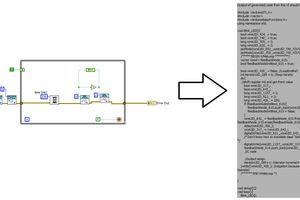Table of Contents for the articles on Hackaday.com
- C++ TURNS 30 – LOOKING FORWARD TO THE FUTURE
- CODE CRAFT: WHEN #DEFINE IS CONSIDERED HARMFUL - Project Log: Define Considered...
- CODE CRAFT: USING ECLIPSE FOR ARDUINO DEVELOPMENT - Project Log: Using Eclipse
- CODE CRAFT – EMBEDDING C++: CLASSES- Project Log: Classes - No Code Bloat
- CODE CRAFT – EMBEDDING C++: TIMING VIRTUAL FUNCTIONS - Project Log: C++ Virtual Function Calls Are Fast
- CODE CRAFT-EMBEDDING C++: HIDDEN ACTIVITIES? - Project Log: What is C++ Hiding?
- CODE CRAFT – EMBEDDING C++: TEMPLATES
- CODE CRAFT-EMBEDDING C++: HACKING THE ARDUINO SOFTWARE ENVIRONMENT
- CODE CRAFT: CROSS COMPILING FOR THE RASPBERRY PI
 Rud Merriam
Rud Merriam

 Ford Sleeman
Ford Sleeman
 Lubomir Jagos
Lubomir Jagos
 Ed Danis
Ed Danis
 Kevin Cepeda
Kevin Cepeda
This is a very basic yet interesting Topic. I wouldn't have thought that c++ still have to prove itself in embedded since it's in the industry since a while. In the sake of completeness, when talking about embedded C++, especially in hobbyist DIY environment, I would make a standing ovation for Arduino (I've seen you've mentioned it on some posts), which has proven that c++ is actually much easier to use so that many start using c++ without even realizing. Also arm mbed worth a mention as it's highly c++ properly wrapped.
Where is this going ? I would end up by wondering if garbage collection should not be something that we should count on ? That c++ has skipped. And finally checking all the ground won by python in terms of practicality not to replace c++ (not at all), but replacing what python can do with c++ is a useless pain.
Last but not least, there is embedded and there is embedded, if it's a TV set c++ it would not be the same as a space rocket c++. Some embedded systems could use a subset of c++ excluding all dynamic memory allocation, and for a reason. I guess the goal of this initiative would be to embed all of the c++. The issue in dynamic memory allocation relates more to the verification tools and processes, it's easier to automatically verify c than c++, and especially cheaper. Using c++ without exceptions is something that c++ defenders find as an oddity, yet convincing safety fanatics to use exceptions is indeed a challenge. I like this project and I'd support it :)